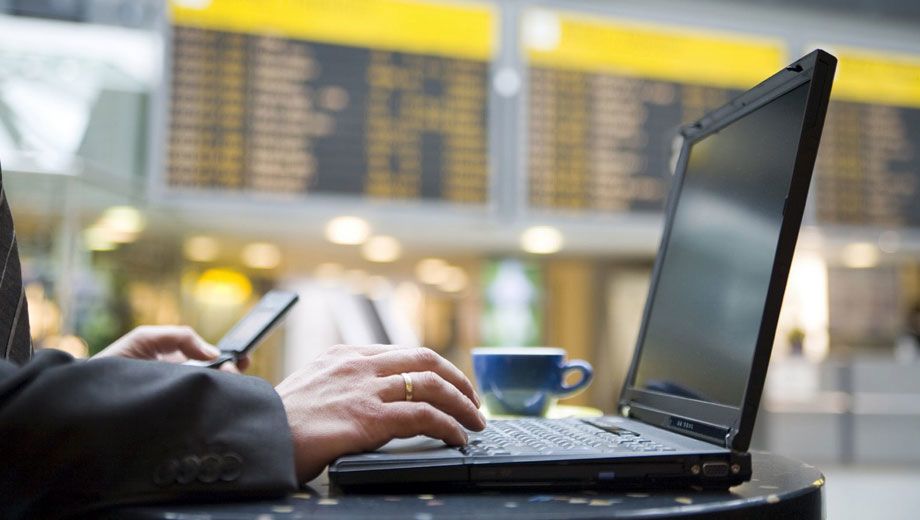The U.S. is considering expansion of a ban on laptops in airliner cabins on flights not only from Europe but from other regions as well, as objections against any broader restrictions mounted.
U.S. anti-terror officials are looking at other areas “not solely Europe,” David Lapan, a spokesman for the Department of Homeland Security, told reporters in Washington on Tuesday. He declined to identify the other areas.
Homeland Security Secretary John Kelly hasn’t made a final decision but an expansion is “likely,” Lapan said.
Earlier Tuesday, the European Union pressed the U.S. to refrain from banning laptops and other electronics in cabins of flights to America from Europe, saying both sides needed to work in tandem to curb the threat of terrorism.
The entreaty came a day before European and U.S. officials were to meet in Brussels to weigh barring air passengers from carrying laptops in cabins.
The U.S. in March imposed a ban imposed on electronic devices larger than mobile phones – including tablets, laptops and DVD players – in cabins on flights from 10 airports in the Middle East and North Africa.
The Washington Post on Monday reported that President Donald Trump revealed to Russia’s foreign minister and ambassador closely held intelligence from a U.S. partner about an Islamic State terrorist plot to use laptops as possible weapons aboard commercial aircraft.
Also read: Australia considers inflight laptop, tablet ban for airlines
'Unilateral Decisions'
The EU’s home-affairs chief cautioned against any hasty decision by officials in Washington.
“We are very much concerned,” EU Home-Affairs Commissioner Dimitris Avramopoulos told reporters in Strasbourg, France. “We know that unilateral decisions should not be taken.”
Airports Council International, a trade association, said a ban could affect 3,684 flights weekly to the U.S. from 59 European airports.
“We are concerned about the consequences that such a ban would have on demand for trans-Atlantic air travel,” Olivier Jankovec, director-general of ACI Europe, said in a statement. “The fact that one of the affected Gulf airlines has downsized its operations to the U.S. is indeed worrying – and points to a wider and lasting economic impact.”
As many as 90 percent of passengers carry affected devices, the group estimates, meaning that implementing ad hoc screening checks and loading devices into aircraft cargo compartments would cause significant delays and cancellations.
U.S. carriers have urged officials to consider alternatives to a ban, including using additional small scanners or explosives trace-detection systems on every item brought onto planes. Airlines worry that a ban could decrease lucrative business travel.
Public safety
The U.S. Department of Homeland Security is “well aware” of views from airlines, airports, other nations and other stakeholders, Lapan said. “It’s our primary responsibility to consider the safety of the traveling public.” Secretary Kelly won’t attend the Brussels meeting Wednesday because of a scheduling conflict, Lapan said.
The European Commission, the 28-nation EU’s executive arm in Brussels, is coordinating the bloc’s response to the aviation-security deliberations.
The EU-U.S. meeting on Wednesday will involve an “information exchange,” European Security Commissioner Julian King said in Strasbourg. He said he didn’t know if the gathering would yield any conclusion.
A senior EU official who is involved in the matter and who spoke on the condition of anonymity said the commission’s concerns so far have prevented the U.S. from widening the laptop ban to Europe. The official said Wednesday’s meeting would be a “marathon” session.


12 May 2017
Total posts 5
At no stage should lithium ion batteries be stored in checked baggage period. There are countless lessons to date on this subject. Why is the world still so stupid as to neglect the enormous volatility risks of lithium batteries aboard aircraft ? It beggars belief just how poorly informed the so called security experts are regarding overall flight safety and the fact that their decisions ironically cause a much greater risk to the traveling public.
12 Dec 2012
Total posts 1031
“It’s our primary responsibility to consider the safety of the traveling public.”
Then you'd be stupid to even consider such a ban. You're thinking about possibly preventing an incredabily minor risk by creating a much bigger one.
Hi Guest, join in the discussion on US considers expanding airline laptop ban beyond Europe